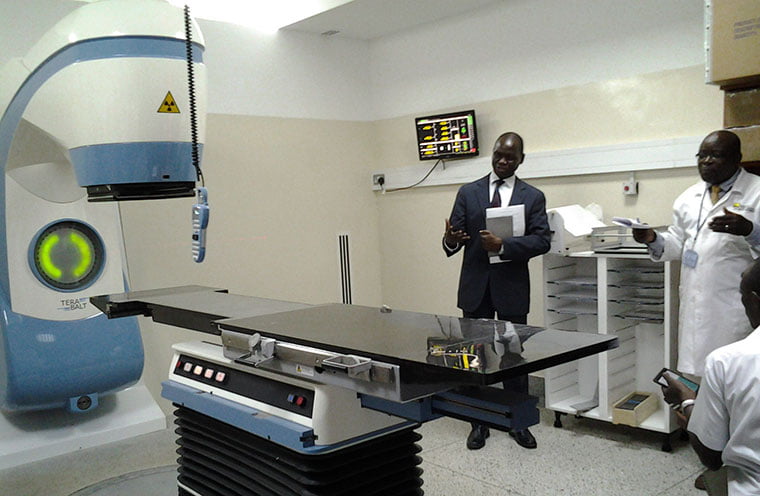 Radiotherapy services at the Uganda Cancer Institute (UCI) have fully resumed following the completion of the servicing of the Cobalt 60 Radiotherapy machine.
Radiotherapy services at the Uganda Cancer Institute (UCI) have fully resumed following the completion of the servicing of the Cobalt 60 Radiotherapy machine.
The machine that was installed in January 2018, had been reported to have broken down two weeks ago leaving thousands of cancer patients at the institute stranded. But According to UCI, the machine was just undergoing routine servicing.
According to the statement, issued by UCI, servicing of the machine was carried out between June 9 and 10, 2018 by a technician from the Czech Republic.
Christine Namulinda, the public relations officer of Uganda Cancer Institute says that the next routine service is scheduled for October 2018.
Namulinda refuted media claims that the machine had broken down explaining that the institute had reduced on the number of patients receiving radiotherapy, towards the machines servicing date, limiting the service to only those who needed the service urgently.
“The machine has never been off, even when those media reports were being put out, the machine was working. We did not close. In fact it was never down. It was just waiting for its servicing. Even the servicing has been done over the weekend and yet on the weekends it doesn’t work. It works Monday to Friday”, she said.
Namulinda says that the routine servicing is important to the functioning of the machine and should not be mistaken with breaking down.
“This machine is like a car and needs to serviced regularly as a means of maintaining it. People should not confuse maintaining the machine to its breakdown. A car in need of service cannot be referred to as broken down.”
Radiotherapy is one of the three forms of treatment for cancer patients in the country. Chemotherapy and operations are other means that are used.
At UCI, radiotherapy is used in the treatment of cervical cancer, prostate cancer, breast cancer and other cancers. It is estimated that around 100 cancer patients need radiotherapy on a monthly basis in the country.
The institute gets an estimated 44,000 new referrals from Uganda and other neighbouring countries including Rwanda, Burundi and South Sudan. 75 per cent of these require radiotherapy.
source:-observer.
